Advertisement
If you have a new account but are having problems posting or verifying your account, please email us on hello@boards.ie for help. Thanks :)
Hello all! Please ensure that you are posting a new thread or question in the appropriate forum. The Feedback forum is overwhelmed with questions that are having to be moved elsewhere. If you need help to verify your account contact hello@boards.ie
Hi all,
Vanilla are planning an update to the site on April 24th (next Wednesday). It is a major PHP8 update which is expected to boost performance across the site. The site will be down from 7pm and it is expected to take about an hour to complete. We appreciate your patience during the update.
Thanks all.
Vanilla are planning an update to the site on April 24th (next Wednesday). It is a major PHP8 update which is expected to boost performance across the site. The site will be down from 7pm and it is expected to take about an hour to complete. We appreciate your patience during the update.
Thanks all.
League of Extraordinary Books
Options
Comments
-
New Items:

Mr.Blettsworthy on Rampole Island by H.G.Wells (1928)
"So that so far from Evolution being necessarily a strenuous upward progress.. it might become.. a graceless drift towards a dead end."
This is not the Robinson Crusoe knockoff you might think it is, given some of the cover art and the title.
So the first quarter almost felt like an Ealing comedy and i thought it was going to end up as a spoof of Crusoe. However the second quarter goes existentially and socially depressing like something by Orwell or Kafka.
The third quarter is the only one set on Rampole Island, whose natives reminded me strongly of the ones from Peter Jacksons remake of King Kong . This might also be the weak link in the narrative. Not on its own but in context of the rest of the story i don't think its as visceral or pointed as it needed to be and ends too abruptly perhaps, but its a minor quibble. The final quarter is set during and after WWI.
. This might also be the weak link in the narrative. Not on its own but in context of the rest of the story i don't think its as visceral or pointed as it needed to be and ends too abruptly perhaps, but its a minor quibble. The final quarter is set during and after WWI.
It really does feel like four or five different books in different genres, starring the same protagonist. I don't mean that its a mess, Wells just slides from one genre to another with consummate ease.
Perhaps it wouldn't be quite as surprising if this was written by a different author, someone who came to prominence in the 20's but to see an old hand like Wells write something which feels so on the edge for its time is very fun.
An extremely unvictorian novel taking in the social views, the advancements in social science, and the political views of its era.
Its still a little longer than felt necessary but a lot to like. Recommended for patient readers and stoics . [4/5]
. [4/5]
Mape by Andre Maurois (1926)
So this starts off with a delightful little prelude about a child inventing the imaginary world of Mape... which we never hear about again .
.
The main story then starts, which is divided into 3 parts, subtitled the Writer, the Reader and the Interpreter.
The Writer describes the real events which informed Goethe's 'Sorrow's of Young Werther'. The Reader is about a frenchman who, supposedly inspired by the works of Balzac, gets into a love affair. And the Interpreter is about the life of famous british actress 'Mrs. Siddons'.
The writing is good and its an easy read. While i doubt the accuracy, the biographical and historical details are intriguing and the author paints some nice scenes.
However given the opening.. parable?, metaphor?.. whatever that was, plus the chapter subtitles, this is clearly advertised as an examination of our relationship with fiction and while technically these stories fit, its very clear that the theme was created to tie together these disparate tales, rather than the tales being written on a theme.
Also i was very close to deducting a star during the last story. Putting aside some melodramatic elements which seemed written, not just set, in the 1700s. The narrative clearly sets up the actresses problem with performing Lady Macbeth (which would become her most famous role), however it then wanders completely off the topic, in the same way this whole book wanders off topic, leading to a frustrating conclusion.
What you get is quite enjoyable but the author really needs to stop moving the football. [3/5]
Spring-Heel Jack, the Masked Mystery of the Tower by Thomas Hoyer Monstery (1885)
Short dime novel. Cracking stuff, fainiting, inheritance, mysteries, gypsies, an indian fakir, this one has it all. Does end rather abruptly. [4/5]
The Ivans by Yevgeny Zamyatin (1922)
Short funny tale but if there was a point to it i don't know what it was. [2/5]
first issue of Lord Horror Reverbstorm (2012)
Surreal comic. Not my taste. [2/5]
Film Items:

Dr.Jekyl and Mr.Hyde (1941)
Really good. More 'American Psycho' than other adaptations . I assumed it was going to be a modern reltelling but no, set in 1890's. [4/5]
. I assumed it was going to be a modern reltelling but no, set in 1890's. [4/5]
Casino Royale (1967)
Quite fun but what a mess. At least 3 different storylines none of which get get adequate screentime. The editing at times is also shocking. [3/5]0 -
New Items:

The Curse of Capistrano by Johnston McCulley (1919)
aka The Mark of Zorro.
A pulpy knockoff of the 'Scarlet Pimpernel'. Not particularly well written. Its fine but if you've seen or read any version of the character then you'll find little of interest.
While many people have stolen from the Scarlet Pimpernel over the years, such as batman, there are different levels of theft. Most Batman stories for example are just taking the general concept, whereas 'The Dark-Knight Rises' steals very particular plot points (of course the rest of that movie is a remake of 'Rocky III' anyway).
This story falls into the latter category plagiarising at least one major element from 'The League of the Scarlet Pimpernal' right down to a particular name.
Their is one spot of originality (unless its stolen from something i havn't read, which is quite possible ), which is the love story. This focuses on the development of the relation between the male and female lead, in the Pimpernel they're already married and all we get to explain why Marguerite would marry such a fop is that he seemed different before the wedding :lol .
), which is the love story. This focuses on the development of the relation between the male and female lead, in the Pimpernel they're already married and all we get to explain why Marguerite would marry such a fop is that he seemed different before the wedding :lol .
Another element which i don't think they meant to steal is the problematic morality of the story, which it shares with Pimpernel. In Pimpernel it was that he was rescueing the rich from the poor, in this its the treatment of the natives. In both cases the hero only comes down on the right side as far as is acceptable for his social position.
The only real surprise for me in this was the tone. Its actually very close to that of the Antonio Banderas film, i really assumed it would be more serious.
Fun enough i suppose but i couldn't bring myself to give it 3 stars. Perhaps more acceptable if you don't read a lot.. or watch much film.. or have anything better to be do . [2/5]
. [2/5]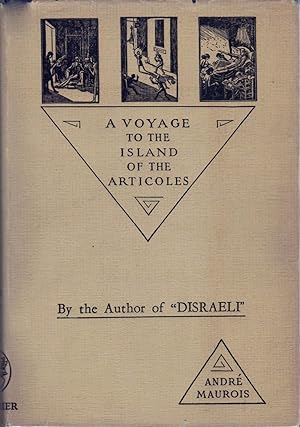
A Voyage to the Island of the Articoles by Andre Maurois (1928)
Quick satire about an island run by artists. Or at least where artists are the celebrities and sort of priests. Apparently 1928 was too early for the concept of a female artist which leads to certain disturbing qualities. The gulliver-esque satire is ok and the characters like able enough.
It did confuse me a bit, the artists are obsessed with people getting in touch with their feelings... is that an art thing? It seemed an odd thing to focus on.
Anyway i deducted a star simply because its a bit too slight. [2/5]
Boxen by C.S.Lewis (1910-ish)
I question the merit of reading any authors juvenilia. I'm also not the biggest Lewis fan, so with that context... i hated it.
The background piece is ok except it keeps referring to 'Surprised by Joy', so if you like this part it just makes you want to read that book instead.
The tales themselves all involved animal people, but arn't actually kids stories by any modern definition. The first is a weird little shakespeare play but it was ok. The main bulk of the stories however consist of a politic drama... its soooooo... boring! I spent most of the time trying to figure out if he was going for satire, or which characters i was supposed to like, or whether it was racist... or maybe anti-racist., or which bits of british history or fiction he was ripping off. However the only conclusion i arrived at was that i desperately wanted it to end :P .
The final 2 stories are an improvement, they're about reforming manners in the navy... wow.. it just keeps getting more exciting, (he said sarcastically). Actually though the final tale was quite acceptable and stopped me considering 1 star. [2/5]0 -
New Items:

One Last Mad Embrace by Jack Trevor Story (1970)
I feel a little bad for not liking this more. Its complete chaos a real 'shaggy dog' story as they say and it seems like something you should read at a quick pace but i've been in a bit of a rut lately so it went very slowly.
It is quite funny but there's also some really messed up stuff going on which can be a bit jarring. Also the main character is an author so he's constantly fictionalizing whats happening around him, usually coming up with some idea of whats going on that turns out to be completely wrong, add to that several characters who lie persistently.
After a while it felt like a british Thomas Pynchon novel or at least something like the Big Lebowski . Its quite filmic, which is normally a compliment but in this case it feels like it might actually work better on film than in book form. Although i can't imagine anyone willing to make something with a schoolgirl like in this :P . She was quite a problem for me but don't worry i don't think... it gets.. too creepy, your mileage may vary . She's as uncertain as everything in this book, aged somewhere between 12 and 28.
. She's as uncertain as everything in this book, aged somewhere between 12 and 28.
Given the style of writing, which is almost meta, probably one of those books enjoyed more by other authors than casual readers. [3/5]
Blind Corner by Dornford Yates (1927)
Pretty good adventure thriller. Almost feels like a YA book even though its characters are a bit older. Not great writing, i found it hard to understand the geography of certain situations, the descriptions were a bit muddled at times.
Not much in the way of characterization but what little we do get is quite odd which was entertaining :lol. Our POV character is ordinary enough to connect with but there's also a retired military intelligence officer who acts as the Holmes to our protagonists Watson.
Some might consider the ending to be a bit anti-climactic but i liked it. I would have liked it more if i could picture everything clearly but there was that problem with the writing i mentioned earlier.
Its not that there isn't a dramatic rush at the end its just not what you might be expecting.
Overall, some morally questionable english derring-do, fast paced and not without its charm. [3/5]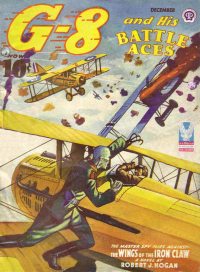
G8, Wings of the Iron Claw by Robert J.Hogan (1943)
Short and vicious WWI spy drama. Great first half but ends too abruptly. Also relies on the master-of-disguise cliche a bit too much. [3/5]
Film Items:

The Avengers, the Winged Avenger (1967)
One of the worst episodes of anything ever made :lol. Occasionally entertaining in its awfulness. [1/5]
Our Man Flint (1966)
James Bond parody, although its not really funny just 60's camp. Comes across at times like Austin Powers crossed with Doc Savage. The horrifying sexism of its utopian villians is interesting, but overall just about watchable. [2/5]0 -

House by the Churchyard by J.Sheridan Le Fanu (1863)
'Why, I suppose there isn't so tattling, prying, lying, scandalous a little colony of Christians on earth; eyes, ears, and mouths all open, Sir; heads busy, tongues wagging; lots of old maids, by Jove; ladies' women, and gentlemen's gentlemen, and drawers and footmen; club talk, Sir, and mess-table talk, and talk on band days, talk over cards, talk at home, Sir - talk in the streets - talk - talk; by Jupiter Tonans! 'tis enough to bother one's ears, and make a man envy Robinson Crusoe!'
Firstly the placename Chapelizod is prenounced locally Chapel-lizard. Being from Dublin i had more reasons to like this than most. While viking-era dublin is something you learn about at school, this lets call it... english-dublin, a dublin of tricorn hats, sedan chairs and absentee landlords, i havn't heard much about.
So i got something extra from recognising all the place names and knowing the geography of everything. At one point a murder is mentioned in passing, as havng occurred in clondalkin and i got a little chuckle thinking 'wow that place hasn't changed in 200 years' :lol.
It opens in a macabre and funny way and reminded me a lot in its setting and tone, of the Tim Burton 'Sleepy Hollow' movie. I remember thinking this is a nice setup can't wait to see what the actual story is. Then the setup went on and on, and on, until it dawned on me with a shudder, that this wasn't setup this was the main text. Let me return to the 'Sleepy Hollow' movie for demonstration purposes.
Imagine if in that film the headless horseman, Johnny Depp and Christina Ricci's characters are all still in there, but pushed to the very periphery of the script. Their story is still happening but your stuck following the lives of the extras only occasionally getting a glimpse of the main characters in the hazy distance.
In the moment the incidents are readable and go from ok to good but theres no point to any of it. Tolerable while reading but an absolute struggle to convince yourself to pick the book up again once set down.
The writing if ok, see quote, is quite organic feeling, like your listening to it even while reading. There are some accents and an occasional lisp but it was neither a plus or minus for me.
Finally at the 60% stage the plot(s) start. I use the plural because 3 of them come along at once and the next 30% rushes along in what feels like a single breath, before we grind to a halt for the last 10% of clean up, which somewhat tested my patience once again.
Many might forgive the first 60% as theres some really good stuff in the latter portion but even these parts arn't without they're flaws.
The author has a remarkable knack of seeming to pick the wrong viewpoint for most situations. It almost always feels like your following the wrong character or focusing on insignificant things while missing the important ones.
Objectively based on my usual scoring this is 2 stars, what i give to failures which have some small worth, the last 40% is quite compelling, mostly. The previous 60% has a lot of charming albeit pointless incidents.
However i've taken the liberty of deducting a star based on personal hatred, it has been quite sometime since i had that dubious honour . More work than 'Mysteries of Udolpho' or 'Melmoth the Wanderer'. Feels similar to the work of 'Thomas Love Peacock'... except terrible :P . [1/5]
. More work than 'Mysteries of Udolpho' or 'Melmoth the Wanderer'. Feels similar to the work of 'Thomas Love Peacock'... except terrible :P . [1/5]
The Shadowy Street by Jean Ray (1927)
A pretty interesting short tale. The first half is a remake of 'The Horla by Guy de Maupassant'. Te second-half is nicely weird but quite confusing. I'd certainly have given it a higher score if it was a little less obtuse. [3/5]
The Rain Maiden by Theodor Storm (1863)
Short fairytale. Pretty well told, some humour, however it is also pretty straightforward. [3/5]
Ode to those Lost at Sea By William Ashbless (1974)
Short poem, it was ok a little bit mundane. But it was designed to make fun of the poetry of the time. [2/5]0 -
New Items:
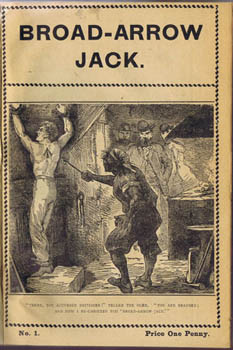
Broad Arrow Jack by E. Harcourt Burrage (1866)
Everything i'm about to say applies to the first 80%, we'll get to the last 5th, which i like to refer to as Season 2, further down.
Forget Superman, Doc Savage, Hugo Danner, The Nyctalope or even the Scarlet Pimpernel, i am declaring Broad Arrow Jack the first superhero!
And i really mean that, even if it had been published first the Pimpernel, despite being the archetype for Batman/Zorro doesn't really read as a superhero story. Perhaps its too well written .
.
This pulpy tale however, with its inhumanly strong and stoic hero, on a quest for justice/vengeance against an international gang of badguys, led by the Ogre, has all the superhero tropes.
It does the 'who created who' the villain or hero trope, the broody orphan hero, the hero wondering abut the cost of his campaign when sidecharacters die in its pursuit, the villians trying to turn the people against the hero etc.
Like many superhero tales its set in a fictional place, we in fact never learn what country its in. They were on the way to australia and end up somewhere with no apparent natives, all the locals are foreigners here to dig for diamonds. All the locations are very generic, the Diamond Fields, Hookey Settlement, Peaceful Village, Golden Pass, Black Rock etc.
We have the Alfred style servant and fatherfigure character. At one point our hero even picks up a young sidekick called Dick (his last name isn't Grayson but still ). Unfortunately it also has the comicbook trope of the constantly escaping villains which can become rather exasperating.
). Unfortunately it also has the comicbook trope of the constantly escaping villains which can become rather exasperating.
But ok i don't want to oversell the superhero elements, while they are there (and many more than i mentioned) they're never around for very long. This is a serial and the plot is a constantly moving target. The author had no idea how long it would be so the initial plot isn't enough to keep things going.
Only about every 3rd chapter or so is with the hero, it tends to go, hero chapter, comedy relief chapter, side character/villain chapter. Since our hero is the 'dark and gritty' type most of the personality is provided by the side characters or even the villains, which get a fair amount of background, some of them anyway.
However by the halfway point i was getting pretty sick of the comedy chapters and by the three-quarter point i was even sick of the non-comedy sideplots, but these weren't constant feelings they come and go.
Due to when this was written you might expect some racism, most of it is avoided simply because of the lack of natives but of the three characters of colour in the book, one is still the main villain and the other two can barely be considered human. This is mostly because the latter characters Caliban and the Tiger, are actually doing a rendition of Caliban and Ariel from shakespeares The Tempest. The Tiger does get a little human characterization in Season 2 after he teams up with Dick (to start forming the Teen Titans i'm assuming :P).
Anyway at the 80% mark i'm pretty sure they brought in a new writer and what i call Season 2 begins. New enemies are introduced and the heros goals recontextualized. They even throw in a One Year Later bit (maybe it was 3 months, either way). The new writer is a bit meaner, their sense of humour if they have one, is a bit different, the writing a bit more racist, a bit flatter. The characterizations become a little different. If it was all written like the last 20% i don't think i'd call it a superhero story its just standard adventure/detective fiction.
On the upside, the new writer doesn't change scenes as much so you can read more chapters in a row without feeling like you need to pause, its quicker. Also theres one good fight, but there's evidence to suggest that was written or at least outlined by the original author.
Also, as pennydreadfuls go its a lot more consistent than Varney the Vampire despite changing authors. Its not shakespeare (apart from the bits of the Tempest and Macbeth it stole :P) but despite its length i'll still give it 3 stars, just. [3/5]
Sherlock Holmes, the Creeping Man by Arthur Conan Doyle (1923)
A short mystery not really needing much investigation. Interesting idea though and some decent characterization of the Holmes/Watson relationship. [2/5]0 -
Advertisement
-
New Items:
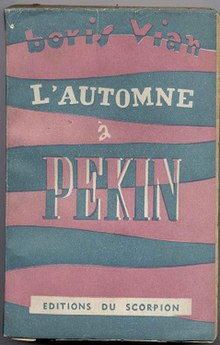
10). Autumn in Peking by Boris Vian (1947)
The story such as it is, is pretty basic, kind of like a play you know? Group of people in the desert. Bit of Kafka here and there but not too much.
Some humour, plenty of vulgarity. It is surreal but most of that is confined to the first quarter. I don't do well with surreal but in this case a lot of it was inanimate objects described like animate creatures, which is the very essence of most animation, so i just pretended those parts where a cartoon .
.
The delivery of the dialogue can be quite stilted not sure if thats in the original or just the translation, which must have been a nightmare so well done Mr.Translator anyway.
Not much more to say, very Indie, its nothing amazing but i was never bored. [3/5]
09). The Amazing Adventures of Kavalier and Clay by Michael Chabon (2000)
The tepid occurrences of mostly Kavalier, as it would be more accurately titled. Is one of those stories which takes a certain period of history from an odd perspective. Kind of like 'Forrest Gump' or the 'Curious Case of Benjamin Button'.
In this case the 40's and 50's. The main problem with the book is really the characters, or lack of focus on the characters to be specific. When the author really zoom's in and shows what people are feeling then you become interested, its compelling at least if not amazing.
The entire last quarter is like this, however before that character connection only comes in short spurts. The author changes character perspectives or goes for a more remote viewpoint and you just stop caring.
Even at its best though its still very slight. Much of the appeal is made up of the references to 40's obscura. Its like the author did a bunch of research and came up with a list of odds and ends he was determined to get into the book regardless of what that might do to the pacing or narrative consistency.
In addition none of these references, even the comicbook stuff is particularly indepth. The whole thing feels remarkably slight given its length. The tone can be odd too, while occasionally vulgar its also remarkably sanitized, i felt like i was reading a YA novel at times.
Overall it feels like it was written by a high brow author then dumbed down for a millennial audience before being edited by a Board of Education Committee. [2/5]
5 issues of The Fly (1961)
Co-Starring Fly-Girl. Suspiciously similar to Ant-Man and the Wasp comics. [3/5]
3 issues of Jet Black, aka Space Ace, aka Rocketman (1947)
Bit more overwritten than most comics. A lot stolen from the Barsoom pulps. [3/5]
10 issues of Dr.Occult (1936)
Cheap looking supernatural detective comicstrip. Awful but really grows on you . [4/5]
. [4/5]
10 issues of Super-Police (1936)
Starring Rex Cosmos. Just a pirate pulp converted to sci-fi. Certain odd humour though. [2/5]
2 issues of Crash Carew (1947)
Four page space comicstrips with the most basic of writing but decent art and an interesting font for some reason . [2/5] 0
. [2/5] 0 -
New Items:

08). Death of a citizen by Donald Hamilton (1960)
The spy genre, or ex-spy/detective genre, is not one i frequent too often but i've read a few and while not as detailed as a Le Carre or Deighton and still a bit politically incorrect, this is a heck of a lot better than say a Bond story.
A little bit pulpy, it ain't shakespeare but its quick and too the point, compelling and well thought out.
The author does a great job establishing his main characters with some flashbacks, although this almost becomes a problem. So many flashbacks interrupt the early stages that in real time the 1st third of the book covers only a couple of hours, so it might feel like you havn't accomplished much when reading those parts :P . But its a minor quibble.
While the main character might feel a bit dated thats rather the point, and he's counterbalanced somewhat towards the end with some more modern less brutal characters. Its remarkable how modern and fresh the story feels for something written in 1960.
If i was grading on a curve against all literature it would be a lower score but in terms of the pulpy exciting spy/detective story that its trying to be its essentially flawless. [5/5]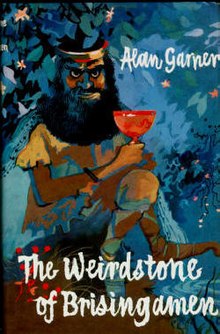
07). The Weirdstone of Brisingamen by Alan Garner (1960)
High fantasy children's book. This is a strange one, at times it felt like it was doing to fantasy what 'Alien' or 'Red Dwarf' did to sci-fi. It makes things just seem very mundane, not boring, just oddly normal and unglamorous, i quite liked those parts.
It reminded me of 'Over Sea, Under Stone' until about the 15% mark when the author just decided to give up and steal as much of 'The Lord of the Rings' as he could get away with, which turned out to be a LOT :P .
The entire rest of the book is one long chase sequence and the near constant thefts from LotR did become a bit annoying.
The language can be a bit tricky for younger readers, there are a lot of names thrown around too and some accent writing. As the plot never slows down there isn't too much in the way of jeopardy or at least suspense, but the speed of events and the ridiculous pileup of fantasy concepts stopped me getting bored.
Its kind of terrible in a way and funny, possibly on purpose? It became so absurd in the latter portions it started to remind me of 'Labyrinth'. Fun enough as LotR's ripoffs go. [3/5]
1st issue of Masterman (1952)
Odd sense of humour, quite a bit like Shazam interms of powers. [2/5]
2 issues of Miss America (1943)
Standard superhero fare, too perfect a hero to be interesting. [2/5]
Film Items: _
_ _
_ _
_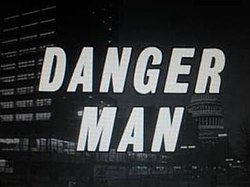
Avengers, Lobster Quadrille (1964)
Its got a nice if rather pointless Alice Through the Looking Glass motif going on. [3/5]
Avengers, Bizarre (1969)
Even sillier than usual. Almost as camp as the 60's batman show. [3/5]
New Avengers, Eagle Nest (1976)
Its got an interesting storyline and some decent chemistry, i'm probably still being a bit generous on the rating. [4/5]
Callan, Death of a Hunter (1969)
Really good brutal spy drama but it was an end of season episode. [4/5]
Department S, The Mysterious Man in the Flying Machine (1969)
More violent and raunchy than similar shows. Only a half-hour so the story is jammed in pretty tight. [3/5]
Danger Man, the lonely chair (1960)
Another half-hour show, its decent detective/spy stuff. [3/5]0 -
New Items:
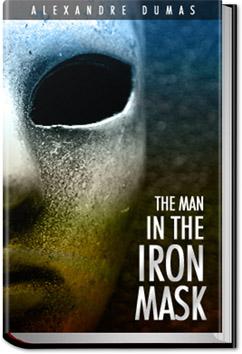
06). The Man in the Iron Mask by Alexandre Dumas (1847)
I was reluctant to read this due to the ubiquity of the Musketeers and because for whatever reason i had assumed Dumas to be a high-brow difficult author. Boy was i wrong, this had such an easy almost pulpy tone to it, perhaps a tad hard to parse during some dialogue but overall very smooth and a nice style.
I was in, the first 20% was 5-stars even with some interruptions to worldbuild, but then after a climax it suddenly switches characters. Which it will continue to do throughout the novel as there isn't actually any main character. Its a terrible structure where the momentum drops at each switch and has to start to build up again. Still Dumas manages to make it work, and the awful structure does at least mean you never know what might happen next.
Dumas even gets some use out of Raoul, the most worthless of side characters, in his first major section at least.
So not 5-stars but still a solid 4... until we reach the conclusion, if i can use that term since its about 10 chapters long. One major character goes through a complete personality switch for no reason and the rest is just turgid wrapping up and politic history lessons and absolutely none of it has anything to do with the actual title of the book.
An 80% of good to great with a soft squidgy mess at the end. Like driving a sports car into a swamp. [3/5]
Skimpole's Crusade by Martin Clifford (1908)
Short tale by the same people behind Billy Bunter. Skimpole is basically Sheldon from BigBangTheory, but people put up with his nonsense a lot less. This time he's become a socialist. [3/5]0 -
New Items:

05). Infinite Jest by David Foster Wallace (1996)
Aarrrgghhh!!!! what a frustrating ending... but given the nature of the story artistically justifiable i suppose . This whole book is like a love letter to 70's writing, its science-fiction elements, social elements and some of the styles it uses all screamed 70's to me but better written than most 70's stuff.
. This whole book is like a love letter to 70's writing, its science-fiction elements, social elements and some of the styles it uses all screamed 70's to me but better written than most 70's stuff.
Its mostly about drugs, or the thing drugs are used to fill in for. Until close to the end there wasn't really any point, or goal in sight. Its a bit like 'The Sound and the Fury' or 'One Hundred Years of Solitude', in that its mostly about a certain family, with references to a few different generations, this has a lot more side-characters though.
Its told in a non-linear fashion and the first 20% is the most confusing, but also the most innovative, it feels like there are a lot more scene changes and different 70's styles in use here than later. From 20-50% percent was the low point for me (still 4 stars though). It seems to get a bit flatter, after the 20% you have a pretty good grasp on who's who and whats happening, the new car smell has worn off. However by the 50% i was fully invested in the characters and their world which upped the enjoyment again.
Its also sarcasticly edited.. if thats a thing, which i guess includes the abrute ending but also covers the use of endnotes and non-linear style. While some of the endnotes are pithy others run for 20 pages, and some of those endnotes have their own endnotes , which certainly felt sarcastic to me
, which certainly felt sarcastic to me  . Also some of the scene changes are so artificial you can practically envision the editor cutting and pasting a massive piece of text into the middle of another scene with a slight evil grin on his face.
. Also some of the scene changes are so artificial you can practically envision the editor cutting and pasting a massive piece of text into the middle of another scene with a slight evil grin on his face.
But the writing is easily worth the price of admission, Wallace's ability to construct memorable scenes is... well its endlessly entertaining . This isn't 'funny' by the way, i mean in places it is, but overall its about as funny as a Terry Gilliam film... "Brazil" in particular springs to mind.
. This isn't 'funny' by the way, i mean in places it is, but overall its about as funny as a Terry Gilliam film... "Brazil" in particular springs to mind.
Its also really dark, there are so many bad drug trips in this it resembles 'Requiem for a Dream' in places, only slightly mitigated by the sarcastic tone which hovers around the novel.
Overall i enjoyed almost every page (except the last where that joy turned momentarily to rage :P ) which considering the length feels like an extra special achievement. [5/5]
04). The Eye in the Pyramid by Robert Shea & Robert Anton Wilson (1975)
A conspiracy satire. I thought at first it might be a direct retelling of Call of Cthulhu which it isn't... but the Lovecraft influence is strong and not hidden, the necronomicon and lovecraft both appear in the tale but so does everyone else, machen, chambers, james bond, 20,000 leagues and many other things get referenced.
Knowledge of 70's america, the hippies, beats, riots etc all useful as might be watching the Public Enemies movie.
It never takes itself too seriously, there's even a couple of reviews of the book in the book complaining about how terrible it is , the sections on conspiracy theories and numerology can be boring but again they feel like they are intended to annoy.
, the sections on conspiracy theories and numerology can be boring but again they feel like they are intended to annoy.
The best (and for some people, worse) thing about the book is its structure. You know the way some novels have this floaty omniscient narrator, well this story goes one step farther as all the characters are sort of connected on some psychic level and you follow the connection from place to place.
So you might have 5 different characters in different times and places doing different things all within a single paragraph. Or you might have Bleed. You'll be following two detectives in new york while you keep hearing a chant of We Will Not Be Moved, without knowing where its coming from, until the scene suddenly switches and you find yourself at a peace rally 3 years earlier. To make things even odder sometimes the characters themselves start hearing or seeing whats happening to each other.
Its all delightfully chaotic and i don't know whether its to my credit or shame that after a while most of starting making sense :P . If it was a complete story i think it would be five stars. Confusing, witty, filthy, non-pc with some lovecraftian elements and a porpoise named Howard whats not to like . [4/5] 0
. [4/5] 0 -
New Item:

03). The Aeneid by Virgil (19BCE)
"..Is it that the Gods inspire,
..this fever of the breast?
Or make we gods of but a wild desire?"
So i read the 1907, Edward Fairfax Taylor translation except for a few chapters on audio from Librivox which was the Dryden version. I also looked in every so often on the PoetryinTranslation version because they use classical paintings as illustrations which is pretty cool.
The Taylor translation came with a full set of annotations which were very useful.
The poem overall is a bit awkward, some of that might be the translation but most of it is because Virgil likes to use these elaborate little stories for metaphors and by the time he's finished i often had no idea what point he was trying to make :lol.
Large portions of the story are also fairly redundant and there are various asides to stroke the roman ego. There are also a lot of characters but you never really get to know any of them very well. Most of them being introduced only a few lines before they die .
.
On the upside many of the battle scenes are good, it really shows the fog of war and costs. Dido, Juno and everyone really, gets a chance to show their side of the issues, its a surprisingly evenhanded tale.
I also like that Aeneas is so average, he's not particularly brave or cowardly, smart or stupid, good or bad he's just in charge because people know his mom, like a slightly less effective Sterling Archer .
.
Anyway not my favourite epic, some boredom, some parts of interest. [3/5]0 -
Advertisement
-
New Items:

02). Dining on Stones by a Iain Sinclair (2004)
"Everything that had happened to them... had been refracted through Norton’s fiction, his voice. The unplaceable accent. The half-truths. The bending and warping of a simple event, a walk."
Boy when you finish a Sinclair book you certainly know you've been in a fight... wait maybe that isn't how your supposed to feel while reading :P ?
Some prior material that might help with this one includes 'Heart of Darkness', 'Nostromo' and the film 'Performance'. They won't help entirely though as there are innumerable film, book and art reference in this one, more than usual i felt. I would also recommend the art of Max Beckmann but looking at the that actually seemed to make the references to it make less sense :lol .
All of Sinclair's books tend to be about an author trying to write a book, the search for narrative presented as the narrative itself. The books end up somewhere between 'Lost in La Mancha' and 'Adaptation'.
I actually made it to the 2/3 point with a decent grasp on things everything after that is pretty spotty. I think you might need to be an artist of somesort or have a degree in art/literature criticism to get a lot of that final 1/3.
The plot such as there is involves i think 3 different author avatars all of them trying to write versions of the same story or at least involving some of the same characters. Bits of gangster plots, documentary, doppelgangers and recovered notes and photos from a 19th century doomed trip to the amazon.
There are certainly elements of enjoyment but too messy, too long and too much Art for my rudimentary taste. [2/5]
01). Doctor Omega by Arnould Galopin (1906)
Another book in the vain of 'The First Men in the Moon', which of course was famously sued for plagiarism by the author of 'A Plunge Into Space' but nobody cares about that because the latter is terrible.. and also derivative of 'Across the Zodiac' anyway.
This one has all the dryness of a victorian novel but with the scientific interest and all the pulp of later sci-fi without any of the excitement. Its slock, nonsense, drivvel. It also takes elements of 'From the Earth to the Moon', 20,000 Leagues, 'The Master of the World' and 'Gulliver's Travels'.
Its not all bad, the aliens are more like 1950s martians than you might expect, it also might be losing a little in translation but i doubt it.
Any attempts to equate Dr.Omega with Dr.Who are spurious, although i wouldn't be surprised if both characters received some influence from Moriarty of the Holmes stories.
Some small elements of scifi interest but barely worth the reading effort. [2/5]0 -
MISSION ACCOMPLISHED!
GR Items: 450
Time Taken: 10 years, 10 months.
Additional Non-GR Items:
Comic Issues 175
Short Stories 69
TV episodes 56
Films 42
Fairytales 19
Radio episodes 15
Magazines 11
Poems 11
Musicals 8
Songs 4
Oh wow... i don't feel well.. i just had a wave of mortality wash over me (like opening a reunion invitation) looking at that time taken :P .
No, no.. this is not a time for existential dread this is a time for celebration... WWWWHHHOOOOOOOOOhhhhoooooooooooooo!!!!!!!!
I did it! i have completed my 'League of Extraordinary Gentlemen' reading list.



 .
.
Oh yess, i've been trying to find a natural stopping place for quite some time but everytime i thought about it i discovered something else of interest still on the list.
I never in my wildest fancies thought i'd be reading for this long, it was never a plan, i just started and forgot to stop .
.
Theres still a few things i could read, but most of those items would be expensive to track down or are by authors i've already read some items by. I'm more than satisfied to stop here and move on to fresh pastures.
I have many a plan already in the works and the cleanup from this list will keep me busy for a few more years.
Before i started this list i read (lets be generous) about 3 books a year. With this list it rose to 30 and after after getting into the swing of things doubled to 60 where its remained steady for the last 5 years .
.
I hope to keep my reading up and hopefully as diverse. This journey has pushed me into many genres i don't normally enter and introduced me to many new authors whom i look forward to reading more of. I'll also now hopefully have the time for some rereads of many of the interesting things i've found along the way .
.
But yeah... that's it, this is the end my friend, all over now, no post-credit sequence here, nothing more to add .
.
~~~~~~~~~~~ finis ~~~~~~~~~~0
Advertisement
